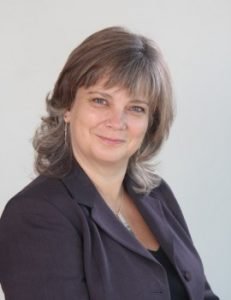18.12.17
The soft skills needed to support elderly clients
Nicola Pugh, Chartered Legal Executive at PCB Solicitors LLP, details the soft skills required of a legal practitioner working with an elderly client and explains how "Solicitors for the Elderly" is an organisation with a membership base far beyond solicitors alone.
I was asked about 10 years ago by my boss at that time to apply to become a member of the organisation, Solicitors for the Elderly (SFE). I was not at all sure that was even possible because I was not a solicitor, but very proud to be a Chartered Legal Executive. I looked into it and was delighted when I discovered that it was not only possible but positively encouraged. I had heard of the work of SFE, of course, and knew that they were an amazing organisation both promoting and supporting the needs of people entering their third age.
I continue to be amazed by SFE; they really are unbeaten in providing a voice for the elderly and keeping modern practice and legislation apace with their needs. I work primarily in private client and property departments, but membership of SFE enables me to ensure lawyers in all departments within my firm are aware of the needs of our older clients. This can vary tremendously from making sure each office environment is appropriate with firm chairs and large-print documents to ensuring someone who has been arrested for a minor traffic infringement can understand the procedure. I may be called upon to ensure a couple buying a home or downsizing are doing so in the best way possible for them.
Law School teaches us legal theory but we don’t often have the opportunity to learn how to go the extra mile to help with the softer skills required, such as helping clients with bereavement or assistance in negotiating the maze of healthcare provision.
Attending regular local updates enables me to meet up with others working in my area. It’s great to share ideas for best practice and have a chat about current issues affecting our daily work. The speakers at the local events are superb and provide members with a wealth of information about current issues, health concerns and helpful tips and resources. For example, we recently heard from our local Dementia Alliance Chairman who has himself been diagnosed with Alzheimer’s disease. We learnt, first hand, how we can adapt our systems to enable dementia sufferers to access legal advice as their illness progresses. For example, all our meeting rooms are equipped with magnetic “write on, wipe off” boards to help clients with speech difficulties.
Looking back over the last 10 years, I really don’t know how I would have been able to do my job if SFE didn’t exist, and especially if I was not able to be a member. I am sure at some point they will look at changing the name, but until they do they will continue to deliver support and resources to practitioners and the public alike and continue flying the flag for our special area of the legal profession.

Nicola Pugh, Chartered Legal Executive at PCB Solicitors LLP

